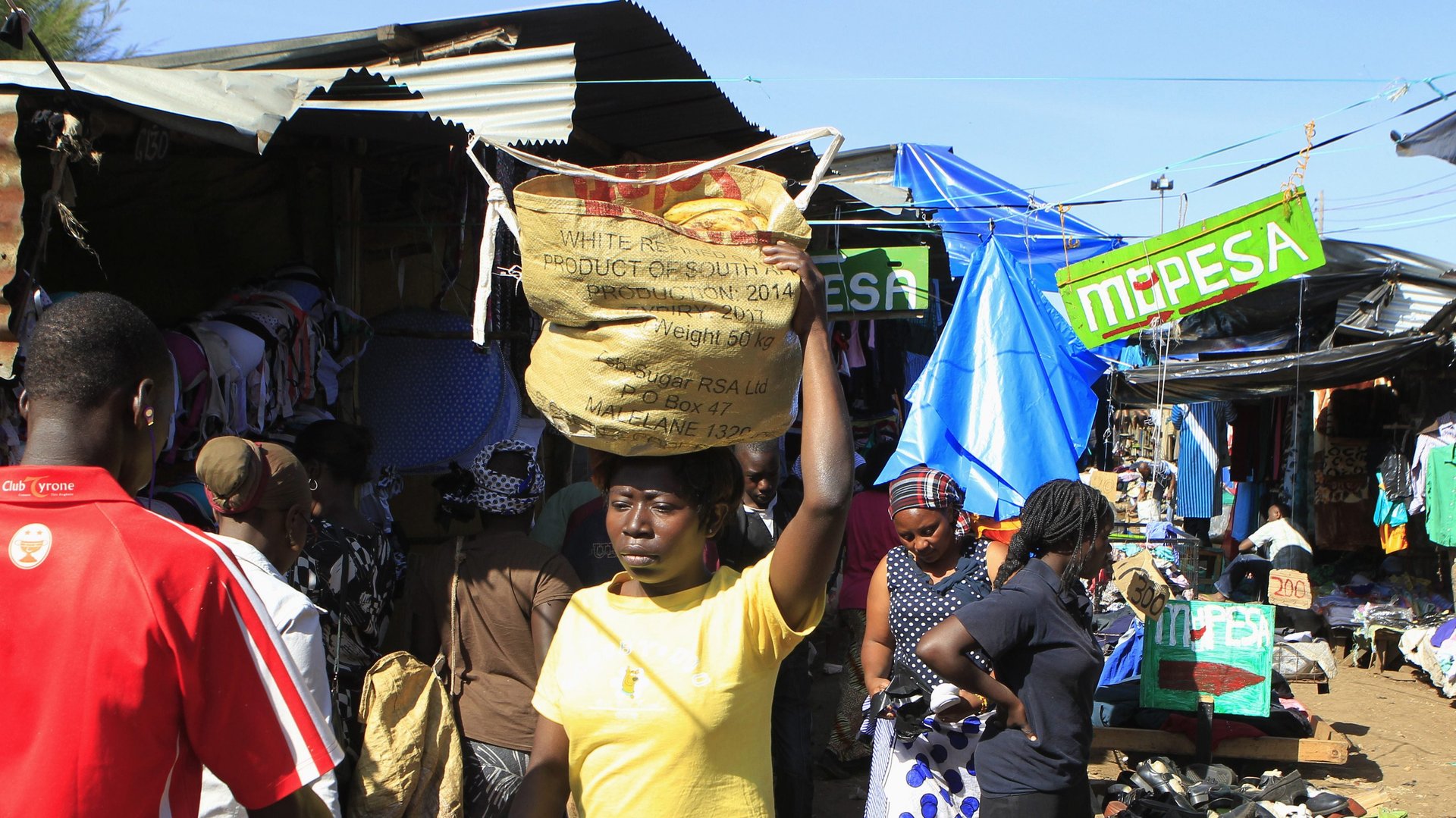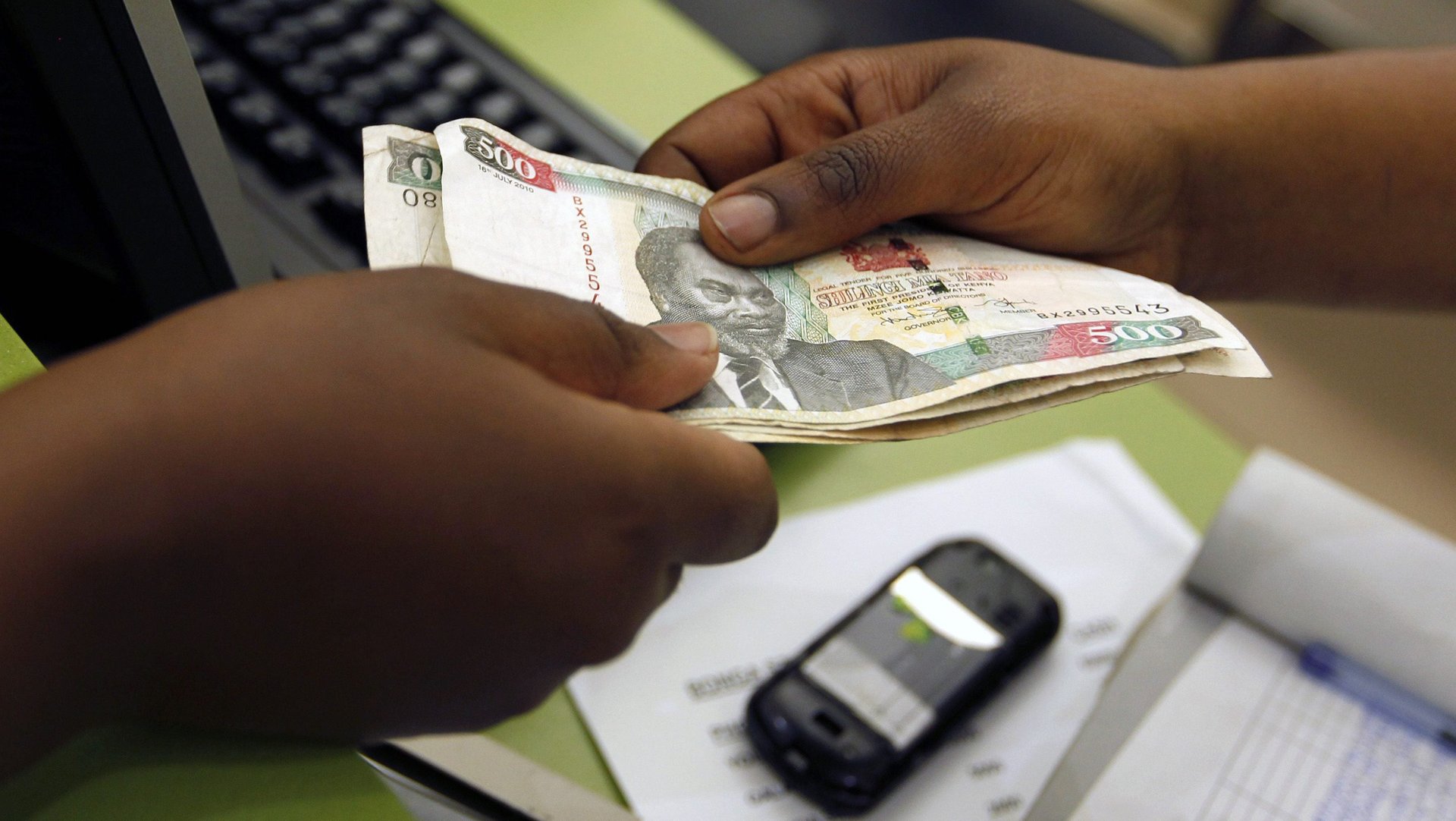The privacy of mobile money users is under threat as the Kenyan taxman chases new revenue
Kenya has led the world in enabling the No.1 major mobile money ecosystem with over 90% of adults in East Africa’s largest economy transacting money through platform. While many other phone operators and governments around the world have looked on with envy as it has grown to nearly $30 billion a year in transactions, M-Pesa’s lobbyists have been fending off a more difficult adversary.


Kenya has led the world in enabling the No.1 major mobile money ecosystem with over 90% of adults in East Africa’s largest economy transacting money through platform. While many other phone operators and governments around the world have looked on with envy as it has grown to nearly $30 billion a year in transactions, M-Pesa’s lobbyists have been fending off a more difficult adversary.
The Kenyan taxman is seeking unfettered access to private mobile money transaction records in bid to identify tax cheats who use the platform.
Currently only possible through a court order, the Kenya Revenue Authority (KRA)’s sights are set on the multi-billion dollar informal sector, which has traditionally been elusive but uses mobile money to comfortably transact money at every turn. Other African governments, struggling with how to rope in an elusive informal sector into the tax bracket, will be watching Kenya’s progress closely.
A decade ago, it was nearly impossible to believe M-Pesa, which is run by Kenya’s leading phone network Safaricom, would grow to permeate virtually all aspects of people’s financial lives. Its phenomenal growth, with subscriptions of 27 million customers (pdf) at the end of 2015, was aided by regulators who got out of the way and allowed it to take off and operate with little interference. Exactly nine years after its launch, 12 trillion Kenyan shillings ($120 billion) had been transacted through the platform as at the end of March 2016. In 2015, 2.8 trillion Kenya shillings ($28 billion) was transacted through the platform.
But M-Pesa’s success hasn’t gone unnoticed.
Missed targets
The billions of dollars that are transacted annually through M-Pesa seem to have stirred the revenue authority from sleep. Missed revenue targets have pushed the Kenyan taxman to make unpopular decisions that have rubbed many taxpayers the wrong way. Backed by the Finance Bill 2016, which is scheduled for debate in the National Assembly, the KRA could finally have access to not only examine M-Pesa records but also information on businesses’ and individuals’ bank accounts on a rolling basis.
“The biggest concern here is invasion of end user privacy. While there needs to be a law passed by parliament establishing a framework of how that is likely to happen, I still don’t see lawmakers acceding to such a proposition,” says Thomas Makau, a telecoms analyst.
With the premise that by having access to mobile money transaction records, it may finally identify entities that have been evading tax by probing their activities and tracking the size of their financial transactions.
“This attempt smacks of a power and scope grab that should be illegal, and is likely an admission that the taxman is failing at its job,” says Peter Wanyonyi, a technology specialist.
Many think that this latest attempt will open up a hostile front, not just with mobile money firms such as Safaricom but also with the public. Safaricom, East Africa’s largest company by profitability, has already rejected this proposal.
“Our involvement is hinged on adherence to the existing laws in place in the country. We, however, believe the revenue authority and the National Treasury shall move to ensure that the necessary policy and legislative changes are made to facilitate this planned direction,” says Steve Chege, director, corporate affairs at Safaricom.
Banks, too, have underscored the constitutionality of their customers’ privacy, stating they cannot divulge details of their bank accounts without a court order.
Mobile money services are now available in more than 35 countries in Sub-Saharan Africa, although M-Pesa’s success in East Africa is still unmatched. In Uganda, a country that is also grappling with increasing its income by cracking down on tax cheats and diversifying revenue sources, 21 million people were registered on mobile money services with a total of $10 billion transacted by the end of 2015. In Tanzania, where the government has already imposed a 10% excise duty on mobile money transactions, subscribers on the service stood at 18 million as at the end of 2015. Globally, mobile money is available (pdf) in 93 countries but East Africa currently leads the world in terms of transactions per capita.
The informal convenience
The rapid growth of the mobile money in many countries has meant that a growing number of transactions are now made through the platform with users taking advantage of the convenience and speed associated with its usage. Millions of people that were previously unbanked or locked out of the formal financial services sector are able to conveniently make small transactions at marketplaces or when paying bills using their phones. Ideally, such transactions happen in an instant, eliminating some of the risks and inefficiencies that occur between transacting parties. Many have opened accounts where they save or borrow money from their comfort zones.
Some however feel that the amounts of money that change hands through mobile accounts are generally minute and would likely fall below the tax threshold. Revenue authorities therefore, need to think of more ingenious ways of raising their tax bases instead of unnecessarily targeting the details of mobile money transactions. About half of sub-Saharan African countries still mobilize less than 17% of their GDP in tax revenues (pdf), which is less than the minimum of 20% prescribed by the UN as essential in achieving their development targets.

The problem has been compounded by the proliferation of the ‘hard-to-tax’ informal sector, where a majority of those now transacting through mobile money belong. In Kenya for instance, the informal sector is estimated to be around 35% of the GDP.
The Organization for Economic Cooperation and Development (OECD) suggests that while informality is in itself not a bad thing, the micro traders could be informal and also “likely to have income and sales well below any reasonable tax threshold”.
OECD observes that (pdf) adopting “simpler, more equitable and transparent tax systems and a broadening of the tax base has been a concern in many developing countries for many years”.
Since its advent, mobile money has granted visibility to a large section of Africa’s economy that was largely unseen as money would simply change hands directly in cash with little or no receipting. But, the precedent-setting move by Kenyan officials could inspire other governments across the world to follow suit as the potential of mobile money hits new milestones each day. With a penchant for spying on their own citizens, this may contribute to the existing lack of trust that Africans have in their governments. Equally disturbing, introducing counterproductive regulations could easily slay the mobile money innovation in many countries by pushing transactions into the underworld.
“If people have to keep looking over their shoulder for the taxman every time they carry out a transaction, many will simply stop transacting using mobile money and begin using other means of exchanging value,” Wanyonyi argues.
Lifting of safeguards on privacy data would also mean rogue tax officials can access anyone’s financial information at will. This could in effect brood a large black economy as genuine and dodgy taxpayers would seek to avoid detection by hawk-eyed tax officials.